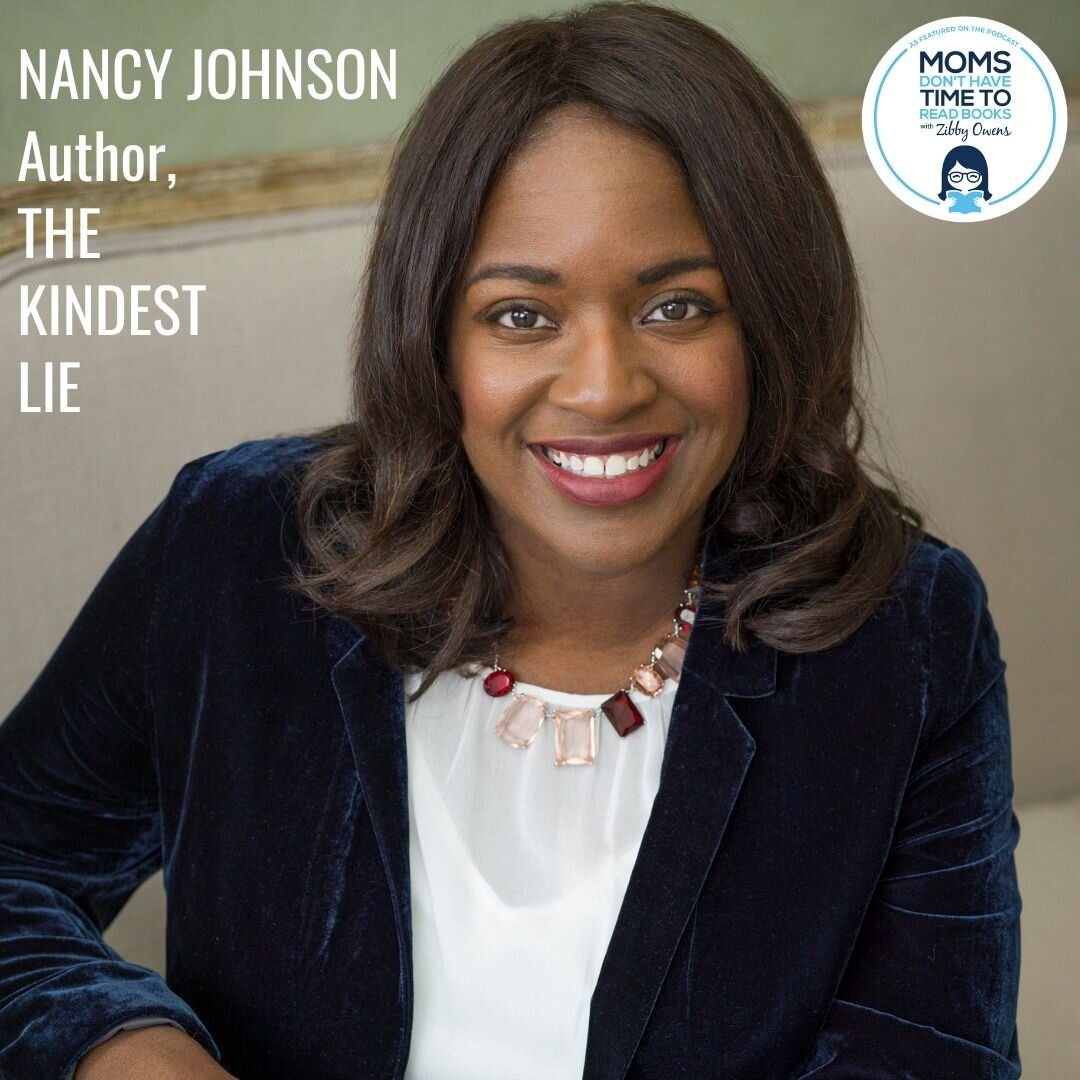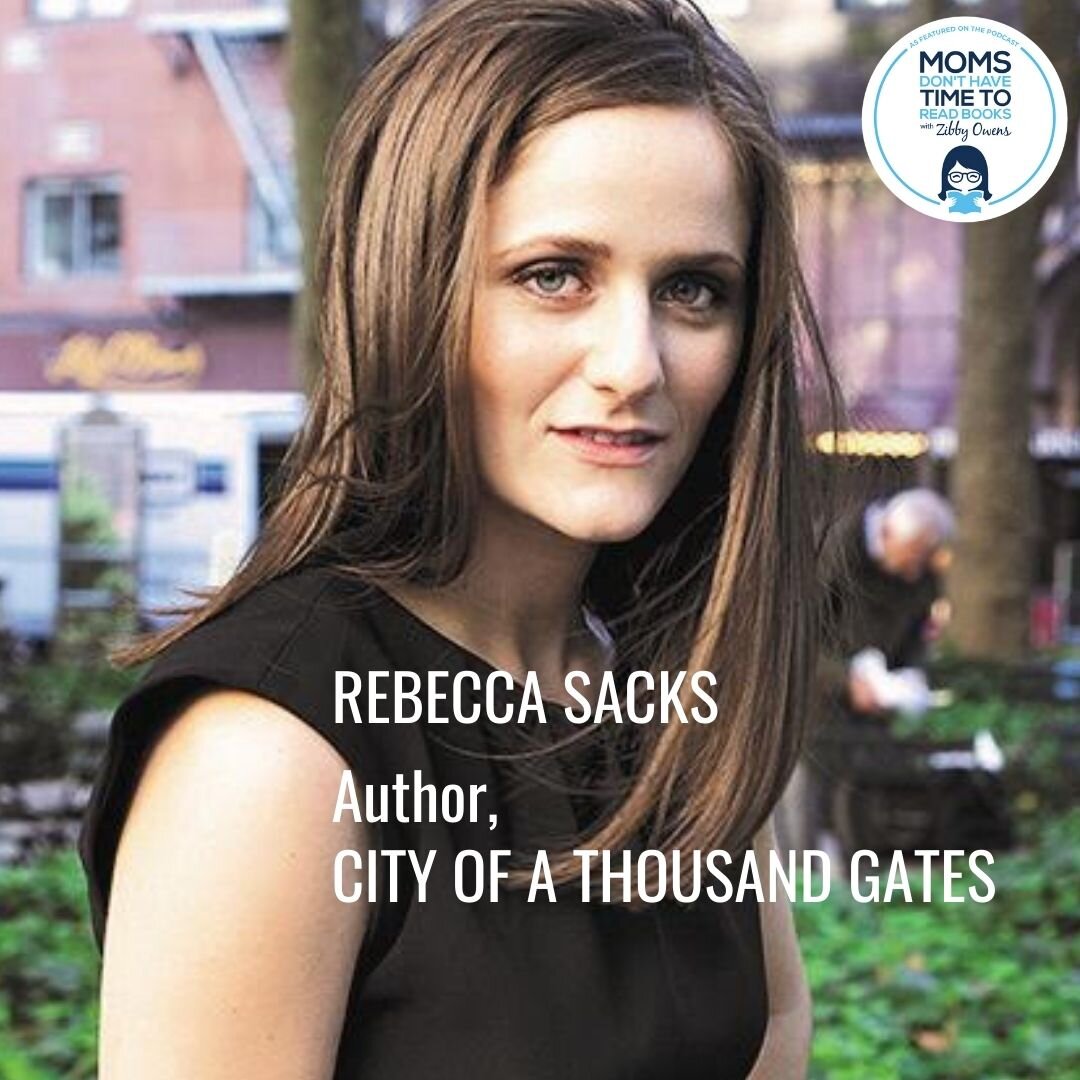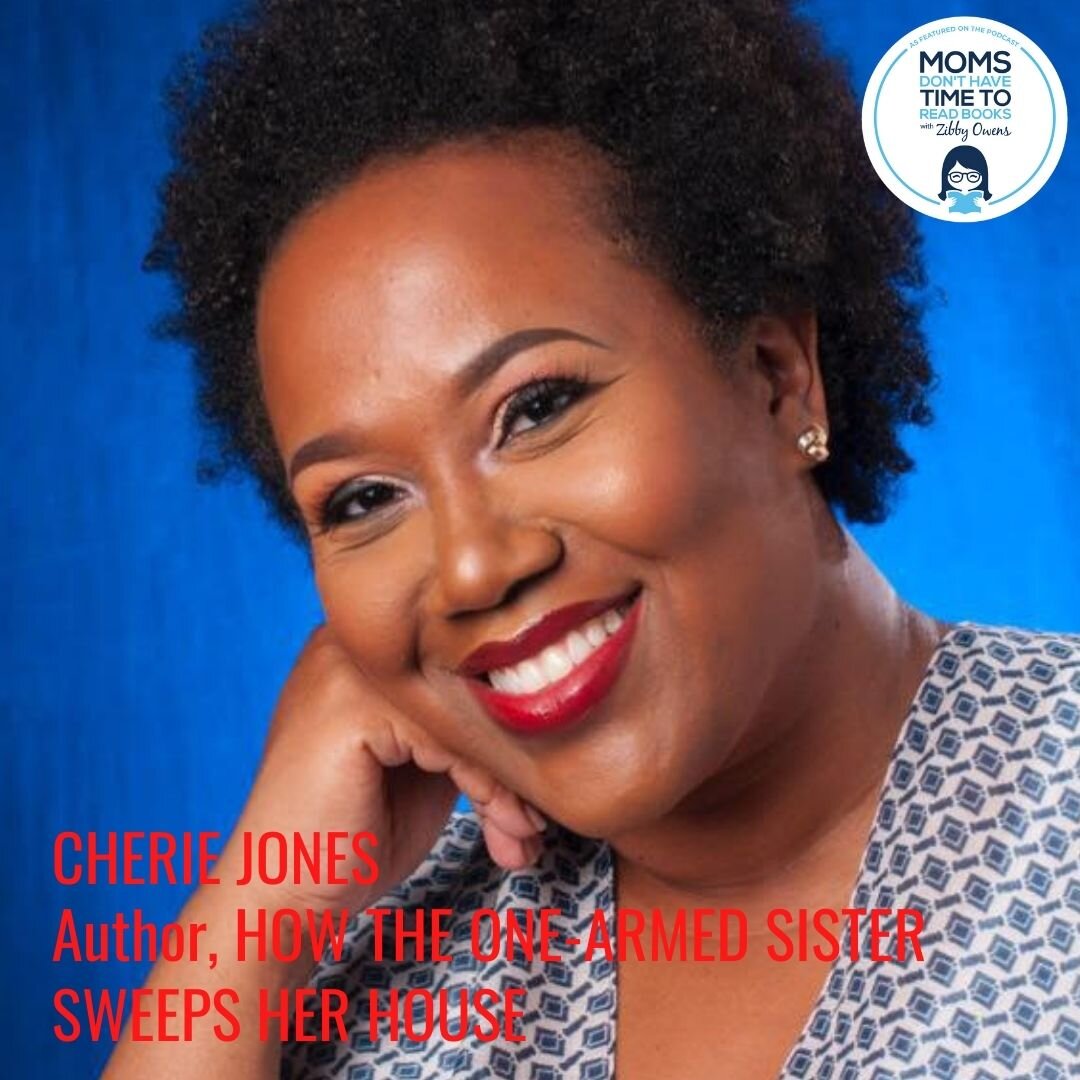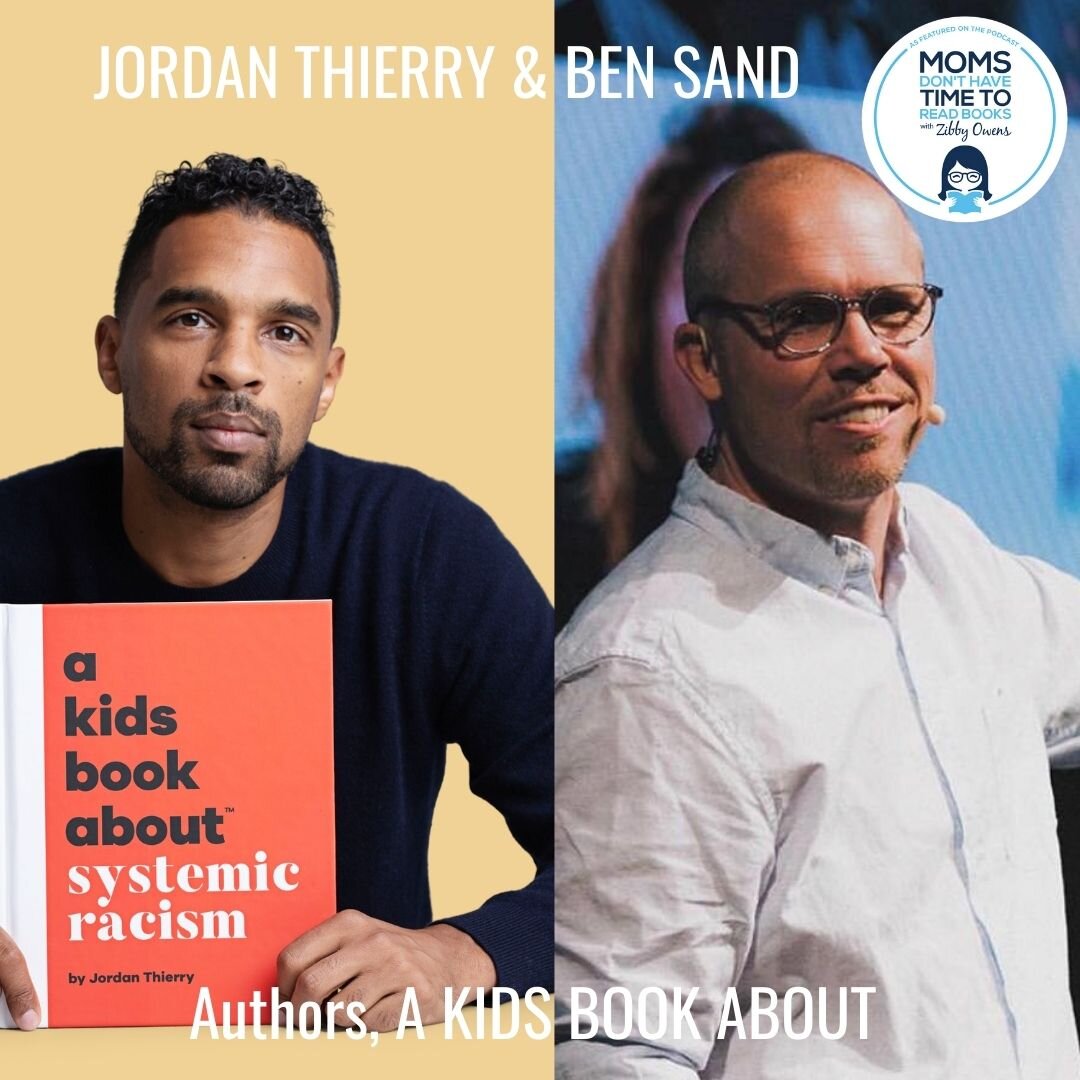Listen to this episode here.
Zibby Owens: Welcome, Liz. Thank you so much for coming on "Moms Don't Have Time to Lose Weight."
Elizabeth Vander Leeuw: Thank you so much for having me, Zibby.
Zibby: It's my pleasure. Let's start by your telling listeners who you are and what you're doing on my podcast.
Liz: Gosh, what am I doing on your podcast? [laughter] My name is Liz Vander Leeuw. I have a health and wellness business here in Charlotte, North Carolina. I've lived in Charlotte for about four years now. I moved here from DC. I have two daughters, Charlotte and Ellie. They're six and three. They're a handful. I have a husband who's a handful too. I know firsthand the struggle of moms trying to do it all, trying to be it all, and fit health and fit weight loss in as well. I work strictly with moms. I can work with women of all ages. I've worked with a lot of women in their twenties before, but I've found that this is really my niche because I'm in the trenches too. I'm in the thick of it. I know all of the same challenges that my clients are going through. I'm literally going through them too. That's just a little bit of background about me. I got my Integrative Nutrition Certificate, I think six or seven years ago now, from the Institute of Integrative Nutrition.
Zibby: I did that too.
Liz: You did? Awesome. I think that I saw that you used to run Weight Watchers groups and that sort of thing.
Zibby: I did. This was in a past life, but yes, I did all that stuff.
Liz: It was so interesting to me because Weight Watchers now is basically what I learned in school, which is more of a holistic program, your primary foods, your secondary foods. You're taking your entire life into account. It's not just necessarily calories in and calories out. That's basically what I learned in school. I learned every dietary theory out there. I learned that there's really not a one-size-fits-all situation. I don't have a lot of these online programs that some health and wellness professionals will sell where it's like, here's your one program that's going to be six weeks. I'm going to send it to your inbox every week and not check in on you. My programs are very bespoke because every individual is unique. Everybody needs different things, different foods. One man's food is another man's poison.
Zibby: What has worked for you? Let's go back. How did you become interested in working in this field? What has your own journey with your own body been like? Is that relevant, or was this just a side interest for other reasons?
Liz: Totally relevant. I feel like I had quite the health journey myself. I'll start there which will lead us into why I got into this line of work. My husband and I grew up in New Jersey. We were high school sweethearts. He went to Georgetown University. I went to American University. I wanted to be little miss Elle Woods, politics. That's why I went to DC. That's what I wanted to do. I worked on the Hill for a little while. I worked on a presidential campaign. I worked in PR firms. I did mostly fundraising. Ended up doing a lot of fundraising for nonprofits and education associations. DC was just a rat race. Super fun place to live in your twenties, but stressful rat race. My husband works in finance. There were weeks he worked 120 hours. We weren’t really taking care of ourselves. When I was in college, when I came to American University as an eighteen-year-old, I didn't just gain the freshman fifteen. I gained the freshman fifty. I did not know how to make healthy choices. I was emotionally eating. I'm the only child. I was away from home. I didn't really have the tool set to be on my own yet. I struggled with emotional eating. I struggled with all that weight gain. With that weight gain came lots of really fun things like weight-related issues, thyroid issues, pre-Hashimoto's disease. I was also diagnosed with chronic Epstein-Barr, which is something that I still struggle with today. I decided when my husband put a ring on my finger when I was twenty-two years old right after college, I said, I've got to lose this weight for my wedding. It was not about the health. It was about vanity. I wanted to look perfect in my wedding dress. I lost over sixty pounds in about two years. We got married.
Zibby: Wait, slow down. Hold on. Sorry, I want to hear the end, but I want more details. When you were eating emotionally in college and gaining all that weight and developing associated health issues, what were your habits like? Were you eating fast food? Were you hiding sweets? Was it a combination of a lot of things? What was your eating like prior to that? Had you ever thought about eating? Had it ever been an issue, or you had just always been sort of thin and you didn't have to think about it?
Liz: I never had to think about it. Prior to that, I did ballet from the time I was three until I was eighteen. I was naturally thin. I had a ballerina's body. I didn't really have to think about what I ate. My mom, who always struggled with her weight -- from the time I can remember, she always did. Still does. She would always provide what she thought were healthy options. She wasn't really well-versed in any of that herself. I really just didn't know even what portion control was. When I went to the cafeteria, it was free-for-all. I would just eat whatever I wanted. If I had a particularly stressful day, I'd eat late at night. I remember my roommates and I going to Krispy Kreme in the middle of the night and thinking that that was a good decision. I would never hide food. It never got to that point for me. I was using food as a way to cope with things that I wasn't coping with, if that makes sense.
Zibby: It does make sense. It sounds very familiar. I'm sure a lot of people listening can relate to that. So you gained the weight during college. Then you decide to lose the weight for the wedding, which I'm sure, again, so many people can relate to. That's every bridal magazine. How did you do that? How did you lose all that weight?
Liz: I really did it through mainly exercise. That was something that had been kind of missing from my life in college. I started to exercise every day. It got to the point where orthorexia was setting in. I was so consumed with what I was putting in my body, every calorie, every gram of fat. I went from one end of the spectrum to another end of the spectrum. Neither of those are healthy places to be.
Zibby: For those people who don't know, what's the different between anorexia and orthorexia?
Liz: Anorexia is an eating disorder where you're actually just not eating or you have distorted ways of eating. I was eating. With orthorexia, it's more of, you're focused too much on what you're eating. You're focused too much on the calories in, the calories out. It's not just that you focus on it too much. It can overtake your whole life and your whole brain. That's kind of what was happening for me. It really ended up not being a very healthy situation. I thought I looked great in my wedding dress, but then I just kept taking it further and further. I got down to a double zero. That wasn't healthy either. Sure, I was eating and I was making these great meals for my husband and I, but I certainly wasn't eating enough. I wouldn't say that I had an eating disorder because I have so many friends that have struggled with true eating disorders. This was definitely something that was more emotional and mental going on with me. I had been diagnosed with Epstein-Barr. I'd been diagnosed with all these different issues. Losing the weight certainly helped, but I still had a lot of health-related issues. I also had an immunodeficiency and IGG deficiency. I had a lot going on that I thought, let's just take ahold of this. I have this super stressful life. I don't necessarily like my job.
I started to look into health and wellness programs. IIN really spoke to me. I decided to go back to school. I was working, did that for a couple of years. I got pregnant. It wasn't really a super planned thing. It kind of just happened. I'm working full time. I'm doing this IIN program, this nutrition program, pretty much full time. Now I'm pregnant. I definitely gained the appropriate amount of weight during pregnancy. It was not super hard for me to lose the weight afterwards. I think that I could attribute that to my orthorexia habits. The process of going through IIN, it was just such a healing process me. I was able to shed all of my issues with food and focus on health. It was no longer about dieting. It became a focus on health. Since then, I've had another daughter. Through both pregnancies, I gained the appropriate amount of weight. My second pregnancy, I probably gained too much. I've gotten to the point now where I'm really healthy and happy and balanced in my body. I've been able to sustain that for the past, I'd say, six years now since my first daughter was born. I think that when you become a mom, it has a way of just clearing out all the BS. You prioritize. You can get your head on straight. I think that the process of IIN and also having my first daughter really helped me to heal all of that. It's something that I really enjoy working on with my clients. If you struggle with emotional eating, if you struggle with orthorexia, not only am I trained in all that, but I lived through it. You can break free from it.
Zibby: When did you put the shingle out and start your consulting wellness business?
Liz: I did that after my first daughter was born when we lived in DC. I did that with a few clients for about two years. Most of my clients just wanted to lose the baby weight and wanted to lose the baby weight. It wasn't really focused so much on health and wellness as much as I always tried to direct the train that way. It just seemed like there was a disconnect there. At the same time, I also started working for a website called Unconventional Kitchen, running their back end, helping them. It was a website for moms to go to for healthy habits, healthy recipes, that kind of thing. I [indiscernible] created recipes for them. That was a really fun thing to do with my degree as well. Through that, through working with Unconventional Kitchen, I started to consult for her and then consult for some other clients in the health and wellness industry who I realized didn't necessarily have business acumen. They had the passion to do this, but they didn't necessarily have the business acumen to run a business. I started to do that and kind of got away from the health coaching for about two years. Once we moved to Charlotte, I realized that while I was making a lot more money doing what I was doing with business consulting, it just wasn't feeding me the way that I needed to be fed. I decided once we were back in Charlotte to start with health coaching again. I did have a baby in between there, so I took a little hiatus. I also noticed that in Charlotte, the health and eating habits are very different than what they were in DC. I find that I'm making a little bit of a bigger difference here for people, if that makes sense.
Zibby: That makes sense. What did it feel like for you to have the whiplash effect of having gained fifty pounds and then all of a sudden being a double zero and being in a dressing room? There must have been a moment where you were like, oh, my gosh, look what is going on. Did that happen?
Liz: I don't even think that it's a look-in-the-mirror moment. I think that it's when you look back on photos. I remember looking through -- my husband and I went to Greece on this amazing trip through the Greek Islands. Take me back. [laughter]
Zibby: Take me with you.
Liz: We got home from that trip, and I would always put together these Shutterfly books because I had time to do it then.
Zibby: PS, I have my teenage son make my photo albums for the whole family. Once your kids get old enough, I pay him like twenty bucks an album. FYI. I don't know if that's bad parenting or not, but I get my albums done. Helpful tips for people who have photos stacking up. Okay, go ahead.
Liz: A hundred percent. I have not done one since my first daughter was born. I remember looking back on that book after the trip and thinking, who is that? She's really skinny. Maybe she's too skinny. Is that me?
Zibby: Did anyone say anything to you? Did you family or your friends? Did anyone say, maybe you're getting a little too skinny?
Liz: For sure, my parents. Even my husband was like, "You're beautiful no matter what." He has loved me at every single size that I have been. He would say, "You don't need to focus on this as much." For him, it was less about how I looked and more about what I was putting my energy towards. I do remember his grandmother, who's very outspoken, always liked to talk to me about it. [laughs] For sure, people noticed. People reached out. I think it's something that no matter what other people say to you or what other people think, it has to come from yourself to actually do something and change it.
Zibby: Where are you now personally in terms of how you feel about your body and all of that?
Liz: Now that I have two little girls, six-year-old and a three-year-old -- we're in a pandemic, so let's just throw that in. Let's say pandemic aside, I feel awesome. I have felt awesome for the past, I'd say, three years since my second daughter was born. I gained weight during that process. The weight did not come off as quickly the second time. I probably still have some of that weight on me now. I'm one hundred percent okay with it. I love how I look. I love having some curves. I'm always going to have more of a tiny body, but I feel like I look healthy. I feel healthy now. It's so much less about how I look. How I feel is everything. I want every mom to feel as good as I feel. Once you get that feeling of not feeling so exhausted all the time, of not feeling like you have to constantly be focused on your weight and what you're consuming, I think that the whole world opens up to you in a new way. Does that answer your question? Do you want to know what size I am now?
Zibby: I do not. I do not want to know what size you are. I'm happy to know that you feel good and that is the overarching lesson. I'm really interested in this concept of orthorexia because I talk to a lot of women who confess to feeling overwhelmed and completely consumed by what they eat. Now I'm wondering looking back, all I did was count points for years at a time. Was that orthorexia? How would you know? If there's someone listening who thinks, geez, gosh, I cannot stop thinking about my weight, what can they do? What are your three tips for people who may or may not be orthorexic?
Liz: I think the first tip is to just, I don't want to say own it, but acknowledge that it's there. Give it a name. Just like when you're in therapy for any other situation, you have parts of you. Orthorexia is a part of you, so name that part and know that it's there. I think that it's really important to talk to that part. If that sounds kind of silly or woo-woo, I think it's really important that if you're struggling with anything between orthorexia, anxiety, any of that, you need to talk to that part and let it know that it's not in control of you. You're in control. You drive the bus. That would be a big sign for you. If you feel like, I'm not driving the bus right now, something else is, something else is taking control, I think that would be the biggest wake-up sign for you to realize that maybe there's something worth exploring here. Maybe there's something that we need to heal here.
Zibby: If people want to work with you directly, do you do it virtually or do you have to be in Charlotte?
Liz: Right now, I work with pretty much only people in Charlotte. I have one client in New Jersey. I like to work with people in person, but everything's virtual right now. I can work with anybody anywhere virtually right now. The one thing that I love to do is my fridge and panty makeovers. That, I always feel like I need to be there with you to do it. I can do those virtually too. It's a sad time. I miss being with actual human beings.
Zibby: Ugh, me too. How can people find you?
Liz: You can find me on Instagram, it's @liz.vandy.health.charlotteCLT, or my website which is lizvandyhealthandwellness.com.
Zibby: That was too fast. Liz Vandy, V-A-N-D-Y. Lizvandyhealthand -- spell out and or ampersand? And, A-N-D?
Liz: Spell it out, yeah.
Zibby: Healthandwellness.com.
Liz: Lizvandyhealthand -- spell it out -- wellness.com. I got to get better at that.
Zibby: In addition to owning orthorexia and everything else, and I know your sweet spot is helping moms, do you have any advice in general for the busy mom who really wants to be healthy and just doesn't have the emotional bandwidth? What you were saying about before you had kids, before you have kids and maybe before you have kids and a job or whatever else you're doing in life, you might have had more mental headspace to focus and make smart choices. I remember before I had kids, I would go through a cookbook and be like, ooh, I could totally make that. I would spend two hours after work. I would make it. It would have three points or something. It would be amazing. I would be so excited. Now I'm like, did I eat? I think I ate today. I don't even have the focus on it sometimes. What are just a few things busy moms who are distracted, or not just moms even, just busy people, even though we're home -- it's not like we're running around as much, necessarily. Even though we're mostly at home, what inspiration and tips can we have for not mindless partaking in some of the habits that maybe we know are not the best but we do them anyway? Then what?
Liz: Gosh, it's hard. It's so hard right now, especially with the pandemic. I'm trying to normalize pandemic weight gain because it's just a different time. In general for busy people, the first thing I would say is accountability, either working with a coach or just finding someone who's in the same kind of life space as you; if you're a mom, maybe finding another mom who has about the same amount of children and about the same age as your children going through the same struggles. Keep each other accountable. I think that for most of my clients, that's what they want me for. They want me to keep them accountable. I'd say that's numero uno, is just keeping it front of mind but allowing someone else to hold you accountable so that you're not constantly doing it for yourself in your mind. Specifically for moms, I'd say it's the same old kind of adage of put the oxygen mask on yourself before you put it on everybody else. Moms, we don't have time to take care of ourselves. We're taking care of everybody else before ourselves. I really feel like we just have to reverse that. We have to reverse the mom psychology, that martyr psychology, in order to be able to focus on what we need to focus on. The last thing I'd say if you aren't working with a coach who's well-versed in this or you don't know anything about what this is, I would google intuitive eating so that you can begin to understand how to become a mindful eater and how to be in control of that yourself.
Zibby: Amazing. Wow, so many tips. So much to think about. Thank you for sharing your very personal story and your whole journey and how it's led you to helping other people, which is really beautiful. It's amazing that you've decided to do that and got out of the DC rat race and instead are helping women where they're struggling a lot and making real change. I think that's awesome. PS, I love your sweater. For people listening, I'll put this up on YouTube, probably. You're wearing this gorgeous magenta sweater. Where is that from? I have to maybe find a sweater like that.
Liz: It's Halogen, just the regular Nordstrom Halogen cashmere sweater. They make a million colors of them every year. I saw this color and I was like, I must have.
Zibby: I'm obsessed with that color. It's amazing.
Liz: Thank you.
Zibby: Very uplifting. That was off topic. Anyway, thank you so much for coming on. I will be thinking of you. I hope I meet you in person.
Liz: It was so nice to meet you. Bye.
Zibby: Take care. Buh-bye.



















